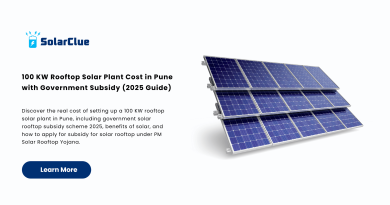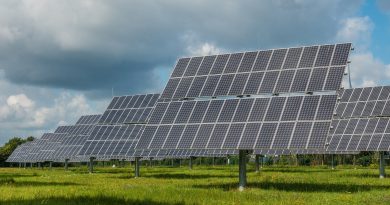How Much Electricity Does A 3kW Solar Panel Produce?
Solar energy is a clean and renewable resource that has become more accessible and cost-effective. Understanding how much electricity a solar panel system can generate is crucial for homeowners and businesses to evaluate its benefits. This blog provides a detailed explanation of how much electricity does a 3kW solar panel produce and estimating electricity generation from a 3kW solar panel system, considering various influencing factors.
Table of Contents
- 1 Understanding Solar Panel Wattage and Energy Production
- 1.1 What is Solar Panel Wattage?
- 1.2 Energy Production Calculation
- 1.3 Factors Affecting Solar Energy Output
- 1.4 Calculating Energy Generation Based on Peak Sun Hours
- 1.5
- 1.6 Estimating Electricity Production for Different Seasons
- 1.7 The Role of Energy Storage in Maximizing Solar Utilization
- 1.8 Comparing 3kW System Output to Average Household Consumption
- 1.9 Tools and Software for Estimating Solar Energy Generation
- 1.10 Example Table of Estimated Energy Generation
Understanding Solar Panel Wattage and Energy Production
What is Solar Panel Wattage?
Solar panel wattage, measured in kilowatts (kW), indicates the power output of a solar panel under standard test conditions. A 3kW solar panel system means the system can produce 3 kilowatts of power per hour under ideal conditions.
Energy Production Calculation

Factors Affecting Solar Energy Output
Solar Irradiance
Solar irradiance is the power per unit area received from the Sun in the form of electromagnetic radiation. It varies by location and time of year, influencing the energy output of solar panels.
Panel Efficiency
Efficiency refers to the percentage of sunlight that a solar panel can convert into usable electricity. Higher efficiency panels produce more electricity.
System Location
The geographic location impacts the amount of solar energy received. Areas closer to the equator receive more consistent sunlight throughout the year.
Weather Conditions
Cloud cover, rain, and snow can reduce solar panel efficiency. Consistent sunny weather increases electricity generation.
Temperature
High temperatures can reduce the efficiency of solar panels. Optimal performance is usually at 25°C (77°F).
Shading
Shading from trees, buildings, or other obstructions can significantly decrease the energy output of solar panels.
Calculating Energy Generation Based on Peak Sun Hours
What are Peak Sun Hours?
Peak sun hours refer to an average of the solar irradiance received in a location during a day. It represents the number of hours in a day when the sunlight is intense enough to generate maximum solar panel output.
Example Calculation
Estimating Electricity Production for Different Seasons
Seasonal Variation
Solar energy production varies with seasons due to changes in sunlight hours and weather conditions. Typically, more energy is generated in summer than in winter.
Monthly and Annual Estimations
By averaging peak sun hours over different seasons, you can estimate monthly and annual electricity production. For instance, if the average peak sun hours per month are 150 hours in summer and 90 hours in winter, the seasonal production can be calculated as follows:

The Role of Energy Storage in Maximizing Solar Utilization
Importance of Energy Storage
Energy storage systems, like batteries, store excess electricity generated during peak sunlight hours for use during low sunlight periods, maximizing solar utilization.
Storage Capacity
The capacity of the storage system should match the energy consumption pattern to ensure a reliable power supply.
Comparing 3kW System Output to Average Household Consumption
Average Household Consumption
An average household in the India consumes about 877 kWh per month (10,524 kWh annually).
Comparison
A 3kW solar system generating approximately 4320 kWh annually covers about 41% of the average household’s annual electricity consumption.
Tools and Software for Estimating Solar Energy Generation
Popular Tools
- PVWatts Calculator: Developed by NREL, it estimates the energy production and cost of grid-connected photovoltaic (PV) energy systems.
- SolarClue: Provides personalized solar estimates based on location and system specifications.
Example Table of Estimated Energy Generation
| Month | Average Peak Sun Hours Per Day | Estimated Energy Generation (kWh) | Cumulative Energy Generation (kWh) |
|---|---|---|---|
| January | 4 | 372 | 372 |
| February | 5 | 450 | 822 |
| March | 6 | 558 | 1380 |
| April | 7 | 630 | 2010 |
| May | 8 | 744 | 2754 |
| June | 9 | 810 | 3564 |
| July | 9 | 810 | 4374 |
| August | 8 | 744 | 5118 |
| September | 7 | 630 | 5748 |
| October | 6 | 558 | 6306 |
| November | 5 | 450 | 6756 |
| December | 4 | 372 | 7128 |
Conclusion
Estimating the electricity generation from a 3kW solar panel system involves understanding several factors such as solar irradiance, panel efficiency, location, weather conditions, and shading. By considering these elements and using the provided calculations and examples, you can effectively estimate the daily, monthly, and annual electricity generation. Additionally, understanding the how much electricity does a 3kW solar panel produce, concept of solar energy potential and its regional variations is essential for maximizing the benefits of solar energy systems.
Here at SolarClue®, we offer a smart, practical, and “beautiful” solution. You will be answered for all the questions related to Solar.
We provide all kinds of brands that are the Best Solar panels in India.
If you are the one who is planning for the solar power system. Don’t hesitate to contact our team!
Looking forward to empowering you with solar energy, just like hundreds of our other clients!
FAQs
1. What is the typical efficiency of residential solar panels?
Most residential solar panels have an efficiency between 15% and 20%.
2. How does shading impact solar panel performance?
Shading can significantly reduce the output of solar panels, sometimes by more than 50%.
3. Can solar panels generate electricity on cloudy days?
Yes, but the output is reduced compared to sunny days.
4. What is the lifespan of a typical solar panel?
Solar panels generally have a lifespan of 25-30 years.
5. Is it possible to install a solar panel system myself?
While possible, it is recommended to hire a professional to ensure proper installation and safety.




